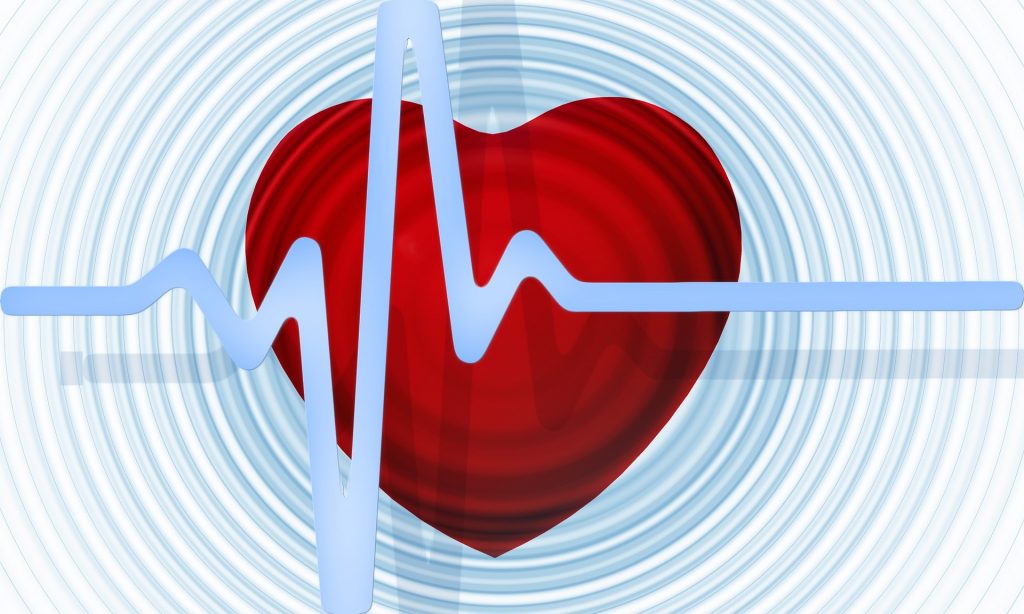To eat eggs or not to eat eggs? That is the question!
Did you get wind of the latest egg health headlines saying that eggs were associated with heart disease? Before you consider eliminating egg yolks all together once again, let’s consider the study design. When we examine better-designed egg health studies, you’ll be putting egg yolks back on the menu.
New Cholesterol Study Makes Headlines

In the latest egg findings reported in JAMA, higher consumption of dietary cholesterol in the form of eggs is associated with a higher risk of cardiovascular disease and mortality. Beginning in 1985, 29,000 people were followed for 17.5 years in this study.
Please note that not all research is equal in the confidence of the findings. This study may have had lots of participants, but the results show only an association, not that eggs or cholesterol cause heart disease. There is a big difference.
First of all, the participants were only asked one time at the beginning of the study what they typically ate and how often. Have you changed your eating at all over the past 17.5 years? Do you remember everything you ate last week? This method of dietary recall is quite unreliable.
But the biggest problem with this study is how the research was set up. It is an observational study without randomized control groups, meaning that it can’t show any cause and effect. Dietitian Rosie Schwartz gave a great example of an association that can be made from an observational study: Summer is the season in which people eat the most hotdogs, and there are also more car accidents in the summer. Using an observational study design, you might find there is an association or link between hotdog consumption and car accidents. It is an observation, but there may be other factors not consider (besides eating hotdogs) that may be associated with more car accidents in the Summer.

To show a cause and effect relationship, you need to compare similar groups selected at random under controlled conditions for specific periods. Other factors like smoking, exercise habits, weight, and intake of saturated fat from other foods (like sausage and bacon) were acknowledged as important in the study yet were not adequately incorporated into the study. So to blame eggs as the problem may be stretch. When it comes to making headlines, however, those study details are usually left out of the story.
Cholesterol and Egg Restrictions Dropped
There are plenty of studies on egg consumption that demonstrate that eating egg yolks does not negatively affect cholesterol levels nor increase your risk of cardiovascular disease in most people.
There is enough evidence to support egg consumption that the American Heart Association dropped their cholesterol level limit. The lack of study results demonstrating that eating eggs may cause heart disease also led the 2015 federal dietary guidelines committee to drop their cholesterol level limit too. Both groups lifted their egg restrictions for most of the population as well.

A fairly recent and well-designed study published in The American Journal of Clinical Nutrition in May of 2018 reported that eating at least 12 eggs a week for three months did not increase cardiovascular risk factors for individuals with prediabetes and Type 2 diabetes.
The American Heart Association suggests an egg per day for people who eat them, as part of a healthy diet. They also recommend an overall health-promoting eating pattern rather than the avoidance of any particular food.
Cholesterol Responders & LDL Size
There is some individual variance to consider in the cholesterol equation. Eating cholesterol-containing foods for most of the population does not cause any change in their cholesterol levels. Most individuals make less cholesterol when they consume cholesterol in their food, make less of it. But about 30% of the population does respond slightly to the cholesterol they consume. They are termed “hyper-responders,” and their cholesterol markers do go up slightly.
Even though eating a few eggs a day may raise blood cholesterol in these hyper-responders, the “bad” LDL particles can change from small, dense particles to large particles in egg eaters. People with large LDL particles have a lower risk of heart disease. So even if eggs cause mild increases in total and LDL cholesterol levels, it may not be a problem.
The Answer & Bottom Line: Should I eat eggs?

To eat eggs or not to eat eggs? That is the question, and this is the answer! So even though some people are more sensitive to cholesterol-containing foods than others, rest assured that eating eggs can be a health-promoting part of a healthy diet for almost everyone!
The bottom line is that it's not just about eating eggs; it's about your overall eating pattern. Eating lots of fruits and vegetable instead of refined sugar and processed foods and replacing less-healthy protein sources like red meat, processed meats (deli meat and pepperoni for example) with seafood, beans, lentils, nuts, and low-sugar, quality yogurt, allows even the 30% of the population who are "cholesterol-responders" to eat eggs.
If you want to know what your cholesterol levels are and how to manage them, talk to your doctor or health practitioner for more specific guidelines for you. Then see a registered dietitian nutritionist (RDN) for specific food guidance.
By Judes Scharman Draughon, MS, RDN, LDN

Judith (Judes) Scharman Draughon, MS, RDN, LD is a registered, licensed dietitian nutritionist, author of 12 Fixes to Health: A Wellness Plan for Life, as well as a corporate wellness speaker. Judes inspires many with her high-energy nutrition presentations, workshops, and seminars throughout the county. She is known as “Foods With Judes.”
Judes is passionate about her quest to empower people to make small changes that make a big difference. She can’t wait to empower you!
